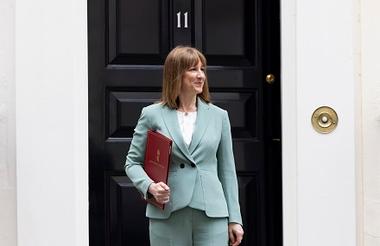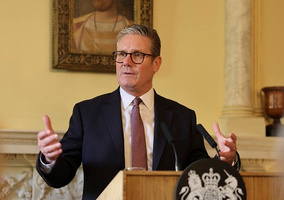The Treasury’s spending review “falls short” for charities, sector bodies have said in response to its publication yesterday.
Some sector bodies praised the “long-term thinking” on display in the review – notably in relation to the planned investment in housing, health and youth services – but many criticised a the lack of support for charities’ rising costs.
The review’s official document, which is over 100 pages long, only explicitly mentions the sector in relation to the government working in partnership with charities and voluntary organisations in order to support communities in need.
However, the review delivered yesterday in parliament by chancellor Rachel Reeves did offer an increase to the Charity Commission’s budget by over a quarter for next year.
‘No support for rising costs for the sector’
The Civil Society Group – a group of almost 60 voluntary, charity and faith infrastructure bodies – had previously called on the government to prioritise long-term financial support for charities and their local commissioners as part of the spending review.
Reacting to the spending review, Civil Society Group member NCVO’s executive director, Saskia Konynenburg, said: “The spending review offers some welcome signs of long-term thinking but falls short of delivering the stability charities need to support communities through tough times.
“While investment in housing, health, and youth services is needed, there is no support for rising costs – particularly where charities delivering public services are not being reimbursed for increased employer national insurance contributions.
“Without fairer funding, many voluntary organisations will remain under unsustainable pressure. The government must work in genuine partnership with civil society to ensure charities can keep delivering vital services and help build a stronger, fairer society.”
Fellow Civil Society Group member CFG’s head of policy, Richard Sagar, described the spending review as “a real mixed bag” for the sector.
“While the chancellor’s announcement will not be cause for celebration, the targeted increases for the NHS, local government and housing will provide vital support for charities operating across these sectors,” he said.
“However, these modest funding boosts fall short of placing local government on the sustainable financial footing that remains urgently needed. The sector continues to face structural challenges that require more comprehensive long-term investment.”
‘Focus on people’s everyday lives is the right one’
Think tank NPC’s head of policy James Somerville was more cautiously optimistic, saying: “The chancellor’s focus on people’s everyday lives is the right one.
“On housing, policies to encourage the ‘crowding-in’ of private investment are welcome.
“When doing this, the government should think about the potential of all forms of impact capital – the impact sector can and already does make a real contribution to housing in the UK.
“It’s vital that the government works with the impact sector across all of its missions – it’s positive to see the impact economy highlighted in the spending review document. We look forward to hearing further details on the Social Impact Investment Vehicle soon.
“The changes to the Treasury Green Book to allow more place-based funding are also welcome. We know that investment in communities as a whole, working with the impact sector, can transform local areas.”
Review ‘lays bare’ impact of aid cuts
The government was previously criticised by international development charities for its cuts to foreign aid announced in February.
Responding to the spending review, Gideon Rabinowitz, director of policy and advocacy at NGO umbrella body Bond, said: “The spending review lays bare the true impact of the UK aid cuts.
“While it is welcome that the chancellor has committed to ending the use of hotels for asylum accommodation by the end of this parliament, planning very slow reductions and diverting £5.76bn of UK aid over the next three years to cover these costs is a political choice that comes at the direct expense of the world’s most marginalised people.
“This is not just poor value for money but shows there is a lack of urgency within government to reduce these costs, further undermining the UK’s credibility as a global development partner.”
Related articles












